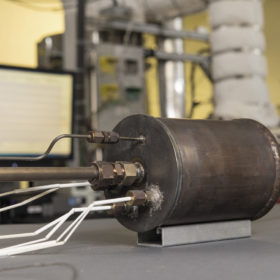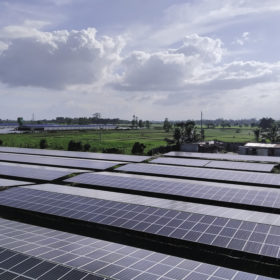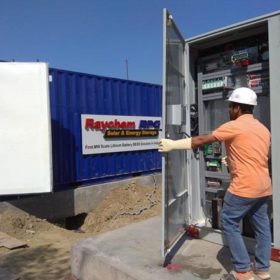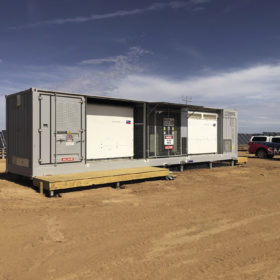The long read: Scientists at Argonne develop new kind of thermal battery
Scientists at the U.S. Department of Energy’s (DOE) Argonne National Laboratory have developed a new kind of thermal battery that can greatly increase the energy efficiency and cost-effectiveness of many industrial processes and shows great promise for use in the solar industry. Liz Thompson reports that Argonne’s Thermal Energy Storage System (TESS) can rapidly capture and store surplus heat so that it can be used as needed. With its pioneering modular design and material advancements resulting in greater efficiency, TESS is a big step forward in thermal battery technology.
EESL, Noida Authority sign agreement on EV charging infrastructure
Noida Authority has selected Energy Efficiency Services Limited to deploy public charging stations under the second phase of the FAME India Scheme. A total of 162 public EV charging stations comprising 108 122kW fast chargers and 54 Bharat DC001 (15kW) are to be installed in the city.
There’s something fishy about this flow battery innovation
Scientists led by MIT have suggested chitin, a carbon and nitrogen-rich material made from waste shrimp shells, could produce sustainable electrodes for vanadium redox flow batteries and other energy storage technologies.
India will add just 50 GW of solar in the next five years, according to company bosses
The expected return would leave the nation woefully short of its ambitious 175 GW clean energy target, which was laid down with a 2022 deadline. Chief executives who criticized aggressive clean power auctions said they would like to see more fossil fuel facilities thrown into the mix.
SunSource Energy bags Lakshadweep’s largest solar-plus-storage project
The 1.95 MW solar plant with 2.15 MWh battery storage will power four islands of the union territory—Agatti, Kavaratti, BangaRam and Thinnakara.
Prioritising clean energy will be key to economic recovery
Cost savings associated with switching to least-cost energy solutions like wind and solar can be redeployed for economic recovery. At the same time, building resilience on fronts like energy system design and supply-chain management is crucial to deal with unexpected shocks and crises.
Post Covid support required for electric vehicles: FICCI
The industry body has recommended a series of measures including a continuation of FAME II Scheme to 2025, short-term booster incentives for consumers and support for in-house R&D to boost the electric vehicle sector.
Designing behind-the-meter solar-plus-storage program for India
A new report outlines key considerations for Indian regulators and other stakeholders when designing behind-the-meter distributed solar-plus-storage system programs, based on evidence from similar programs in the United States.
The long read: Collaborative digital fixes for the energy transition
Straddling two state borders, the West Murray region in southeastern Australia has become a microcosm of technical challenges that can plague the energy transition. Faced with serious curtailment of solar farms in this electrically remote region, a remarkable inverter-based technical feat may have changed the game.
Financing solar projects amid the Covid-19 crisis – thinktank interview
Vaibhav Pratap Singh, senior analyst at the CEEW Centre for Energy Finance, tells pv magazine about the impact of the Covid-19 pandemic on the Indian solar sector, green finance and investment down the line.














